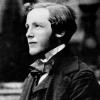Leaderboard
Popular Content
Showing content with the highest reputation on 08/01/17 in all areas
-
Yes - there were a few give aways. Your first word is always a good one to guess, two different two letter words starting with the same letter and a third ending with one of those letters, quite a few cross-checked double letters, etc.2 points
-
Mike, you seem to be entirely missing the point. You have not demonstrated that any part of your heirarchy is valid. You just keep repeating what it is and what you believe about it. That is about as useful as a chess set in a rugby game. If you cannot at least make a serious attempt to justify your claims I shall have to conclude you are just trolling and I really will be out of here.1 point
-
1 point
-
The Observable Universe is finite. Anything outside of that may as well not exist, because it can never affect us in any way.1 point
-
Give a man a fire and he is warm for a few hours. Set a man on fire and he is warm for the rest of his life.1 point
-
Yes. In fact ~5% of our genome is assumed to be of viral origin. it is relevant to note that they are also generally silent, i.e. they do not actively produce viral particle. One theory postulates that longer co-evolution results in viruses become less virulent and eventually just become passengers on the ride.1 point
-
1 point
-
Yes I did, and the path to wisdom you mention attracted my attention. I was hoping you could enlighten me ref god, however I do note that you claim to be an atheist on other posts, so you have me a little confused but still in suspense waiting for a response ref a good god definition . Good god please don't let it be the eternal jelly fish or Dr Who again1 point
-
Path to wisdom huh . I best ask some questions then and learn something. I can see how for many people religion gives some form of social cohesion or a way of life, I have no problem with that, but wisdom derived from the old testament your are joking right. I had not taken you for religious until this post, I am still a bit suspicious are you a religious type chap, or do you just not think religion is a bad thing in moderation for peasants. I asked someone to define which version of god is being discussed here on a couple of posts, what is your version of god. Great spirit, quantum foam, god particle, Jesus, Krishna, Vishnu Teapots etc. I think we have a fairly ambiguous statement about Allah who doesn't rest but sits on a throne from someone I assume is of a Islamic persuasion above. But am not clear on your view. Please define what you think it is you believe in as a god and who speaks for god and how they derive that ability? PS I don't hate anyone, not even Moderators1 point
-
WASHINGTON, D.C. -- The percentage of U.S. adults who believe that God created humans in their present form at some time within the last 10,000 years or so -- the strict creationist view -- has reached a new low. Thirty-eight percent of U.S. adults now accept creationism, while 57% believe in some form of evolution -- either God-guided or not -- saying man developed over millions of years from less advanced forms of life.http://www.gallup.com/poll/210956/belief-creationist-view-humans-new-low.aspx1 point
-
Teleportation is information transfer, not like Star Trek, where matter is teleported and is fictional. There is no evidence of information being transferred. Whatever effect is happening, it is instantaneous (as far as we can tell), but there is no way to exploit this to communicate with anyone. Think of this example: you flip a coin. As soon as you see what one side it (heads) you instantly know what the other side is (tails). Does that require the transfer of information? Now imagine the coin is 1 light-second wide. Entanglement lasts until some interaction removes it, called decoherence. Anything that measures the state that's entangled removes it.1 point
-
I think, the worst culprits are their own female peers in the appearance department..1 point
-
Didn't you read it? Or are you an ignorant liar?The wiki talks about the %YEC in USA . This comes from Gallup: WASHINGTON, D.C. -- The percentage of U.S. adults who believe that God created humans in their present form at some time within the last 10,000 years or so -- the strict creationist view -- has reached a new low. Thirty-eight percent of U.S. adults now accept creationism, while 57% believe in some form of evolution -- either God-guided or not -- saying man developed over millions of years from less advanced forms of life.1 point
-
Can someone provide an example of a preemptively being wage war and it not being considered a bad ideal in hindsight?1 point
-
First point - the suffragette movement started about 100 years before then. I think there are more concrete and well-researched examples than yours - but unfortunately, most of them still hold true. I have seen sexism on the rise and equality on the fall in my lifetime - which I must admit I would never have expected when I was younger. You must be careful not to remove agency from women for their own choices as not everything is dictated - but more importantly to ignore societal, cutural, and religious pressures to conform is part of the problem. I would hesitate to base many conclusions on sexual predilections - they are slippery and hard to pin down (innuendo intended). If you want a well researched, current, and crucial problem look at women's control over their own fertility around the world - and in how many, supposedly forward thinking democracies, these rights to self-determination are being eroded.1 point
-
1 point
-
Our ability to be 'more conscious' than say a zebra, would seem to be a result of our ability to communicate using a complex language, rather than because we have a brain that is constructed 'with a greater consciousness'. Imagine a group of modern day people living on the African plains that happen to have never learnt a language. The communication and behaviour between those people would be basic - possibly even similar to the way a group of zebras behave. And yet for this to be so, the construction of their brains need not be changed from that of a modern day person.1 point
-
here are some more interesting links https://phys.org/news/2017-07-probability-quantum-world-local-realism.html?utm_source=nwletter&utm_medium=email&utm_campaign=daily-nwletter Also Modreds thread on "what space is made off" is incredibly interesting, and broaches on entanglement.1 point
-
Ten oz; Thank you for your patience and for the "up" vote. Up votes are hard to come by for a philosopher in this forum, although down votes seem to be generously dispensed, even when other members do not have a clue as to the topic. (chuckle) A clear definition for instinct? I am not sure, but have my own ideas. A remote operator for action? Feeling/emotion is the operator, and I don't think there is any dispute in this regard. We have to remember that instincts are behaviors, so the definition becomes whatever someone decides causes the behavior. I read in Wiki, under Instincts, that an eye blink is reflex, but a dog shaking it's wet fur is instinctive. Why? The thinking here is that the eye blinks in response to something in it, but the shaking of fur is something that is genetically part of being a dog. How do they know? Maybe wet fur tickles a dog's skin. I did not read the whole article, but think that there is too much that is yet unknown for us to be sure of the causes and effects regarding behavior. And I do not study behavioral psychology. Consider: You are standing on the side of a deep narrow canyon and are about to step onto a bridge. At your first step you feel the bridge start to give way and immediately jump back to solid ground. This was done before thought (You would have died if you had taken the time to think about it.) so most people would call this instinctive. Some might argue that even though you had no personal experience with bridges and canyons, you have seen movies and pictures, so this is not entirely without experience, so not instinctive. Others might argue that the fear of falling and dying complies with survival instincts and is innate. But is this true? Is fear of falling innate? I don't see how. My Mother-in-law told me that her grandchildren were training her to pick things up. She was sitting in a chair beside my one-year-old daughter, who was in a high chair. My daughter took a piece of food, held it over the side of the tray, and dropped it on the floor. She would then watch it fall, and grin and laugh while her Grandma picked it up -- then do it all again. I have seen many one-year-olds do this, and I don't think it is Grandma training, I think they are studying gravity. At a time when they are learning to walk and falling off of assorted furniture, sofas, beds, etc., they are also studying what happens when they let go of something in the air. It looks like magic to them as it flies down. Later, they will learn that bubbles, balloons, and kites have their own "magic" and do not go down -- they will be delighted all over again. So they have to learn about falling, it does not appear to be innate, yet stepping back to save your life most definitely appears to be a survival instinct. How does a chameleon change it's colors? Most agree that this is innate knowledge and instinctive as a survival instinct. But how did it know to change its colors when it first evolved to have this ability? There has to be learning somewhere. DNA is essentially just a map, it is not the thing that is mapped. Chemistry in a bottle does not know anything. It is only when these things are in life that things are known and learning happens, so I think that when we are talking about instincts, we have to be talking about consciousness also. So my opinions are: I read somewhere, and can't find it now, that the Ancients thought there were only a few things that were innate with regard to consciousness. One was "more and less", another was "same and difference", and there was one or two more that I don't remember. This "innate" knowledge was linked to logic and could also be applied to math. It was the foundation for all learning, so it was the beginning of knowledge Regarding instincts, I believe that like knowledge, instincts grow, develop and change as species evolve. So what is the foundation? The initial concept that all instincts are based upon? That would be the law of a god or of the universe that states that all must continue. You could say that the first Commandment is, THOU SHALT CONTINUE. All life is aware that it must continue, whether through the maintenance of it's own body or through it's progeny, it must continue. This is universal to all life and is the source of survival instincts. What many people do not consider is that it is ALL life. That means every cell in your body, every cell in every body, is working to ensure it's own survival, the survival of whatever system it is in, and the survival of the whole person. Just like every life form that maintains itself, is also working to protect it's specie, and to do it's part in whatever ecosystem that it lives in. All life is interconnected through this one commandment and instincts. That depends on how many you want to count. I suspect that a person could count them forever. Consider that when we say the word "drives", what we are talking about is motivations, so what we need are motivators. The motivators are feeling, awareness, and emotion. We have some in common and we have some that are personal. Babe Ruth probably did not have a compulsive need (drive) to fully understand consciousness, and I am sure that I never had a compulsive need (drive) to hit a ball with a bat. Consider an expressway at rush hour. Many are going to or from work, and that is their motivation, but others can have a hundred different reasons for being on the road at that hour. So the drivers can have many motivations for the drives. Gee1 point
-
I don't have much of a problem with people believing in God. I do have a problem with those who view him as a book publisher who only puts out a single volume that contains absolute truth.1 point
-
Thank you for the data Acme. My own estimate, made without benefit of real data, but vague recollection of population numbers and reported YECs in polls, computed more with my gut than my head, was 95 million. The one thing I was sure of was that it was less than 140 million, hence my challenge. One might also consider the following. The poll would have been a poll of adults. If we assume - worst case - no one under the age of 15 was interviewed then the population sampled was 80% of the 325 million, i.e. roughly 260 million. 38% of that is 99 million, which is trending towards my gut wrenched number. Of course this is all incidental to your important point, describing the "still considerable, if not worrying, number". I tend to find the number terrifying. If it was down around 20 million it would be merely frightening. It would need to be less than 5 million for me, for it to be merely worrying. If it went above the 140 million itoero suspected I would lose control of my bowel movements. Thanks again for the data. Perhaps iotero will grace us with an acknowledgement of his error.1 point
-
Who necromanced this 2 year old thread! Anyway, I'm no Iotero -thank the Flying Spaghetti Monster- but I can lend some support to the 140 million figure. First, Wiki says that of July 1, 2017 the US population was 325,350,377. source Second, Wiki says in their page on Young Earth Creationism: Lastly, my calculator tells me that 38% of 325,350,377 is 123,633,143 people. So, not 140 million, but still a considerable, if not worrying, number. Whether these folks would label themselves YECs would be fodder for another poll.1 point
-
As it happens my father in law passed away two weeks ago and we had a celebration this past weekend in his honor. I bring this up because I was so impressed by the way he came to terms with his own end of life. He was 91 and recently diagnosed with a cancer that would end his life within months. His response was to ponder it for a moment, state that he didn't want to pursue any treatment, and then asked what time the baseball game was on. In order to make sure he looked his best he went out and got a haircut. He planned his memorial mass, a luncheon (including the menu, venue, and guest list), and paid up front for the party which included an open bar. About 150 people showed up. He scheduled the festivities for two weeks after his death so as to not cause anyone to have to make sudden travel plans. He also declined to have a funeral procession to the cemetery as he thought they were disruptive to traffic. The eulogy he wrote for himself was short and sweet because he said he knew if could be difficult for the person who has to read it. He went out with a smile and treated his last day no differently than he treated any other. I don't know how he did it, but his example of how to approach death is what I now aspire to.1 point
-
What needs to be remembered here is that it seems that some see optimism as some sort of magical ingredient. That is just plainly wrong. As I previously said, is that any optimistic outlook is essential to human evolutionary development, and has been essential for yonks. We need to be optimistic to survive...sometimes we need to take risks...it is part and parcel of who we are and again is essential for continued development: With those risks of course, comes the knowledge that we also must take all necessary precautions to prevent accidents etc, but even then, as humans, failure sometimes happens, and we learn from those failures. Without optimism and progress, we stagnate. I see the fact everyday, not the least in the orginizations like NASA and some of the others which I previously mentioned, that most thinking people would see the cycle of negativity that others show for whatever reason or agenda, as demoralizing at best, and stagnation at worst. We all want change, we all need change!...for the better... in our schools, communities, nations and world, and the way that can best be achieved is in further and continued space exploration. There are solutions to the many problems facing us here on Earth, and as has happened in the past, space exploration will solve many of them. While obviously space exploration and a viable space industry is not a panacea for all our problems, it is a principle part of our nature to continue what we started in the late fifties and honour those original pioneers both living and dead for their efforts and bravery. Any other alternative, talk or unsupported claims re politics, economics, and our Earthly problems to discontinue or reign in space exploration, is imo grossly in error and will never succeed. Given the time, we are going to go to Mars and further afield...given the time, we will solve and find the solutions to the many vexing problems confronting space exploration and also the problems here on Earth... But we certainly wont by suggesting that optimism is some sort of magical ingredient and inferring that the money be redirected directly to our problems on Earth, while at the same time ignoring the trillions of dollars spent on military endeavours and such. The answers to our many questions are out there...the solutions to our problems are out there, as long as GR and the laws of physics are not contravened...Stagnation is not an alternative: Neither is pessimism.1 point
-
And? Are you implying that all of them want to study and work? I know a great deal of women who are more than fine with not working. Generally speaking, those who want to study will study and those who won't will prefer a man who works. Is there a problem with that? I know many intelligent women; all of them academically more successful than myself. These kinds of women will generally finish college and get a good joob. I see nothing but choice there. So? Is it men's fault that they do so? Are they forced to do it? What percentage of women do that? And what about the men who work out and build their body to impress women? Are men oppressed as well then? Women like men like that and they make sure to achieve that, so they are ''forced'' to do it just the same as the women who get silicone implants, no? You have got the reason for that incredibly wrong. It is because the majority of porn viewers are male. Men, generally speaking, don't care and probably don't want to look at a guy's face during a video. It's completely foolish to say that men's faces are ''hidden'' because of ''chauvinism''. Either way, it's not true for the majority of videos anyway. In 2017., no. You are aware, are you not, that a great number of women prefer ''macho'' men? They are naturally drawn to them for safety reasons. Of course, less so than in nature, but this is 100% true in nature. So you're just telling women what to like. All I see is frustration here. Do you have any arguments? I keep seing women shunning other women for doing things they don't like, such as not getting a degree or job, getting breast implants etc. It is like you are completely unaware that there are women who prefer that. All you are trying to do is force women to be a certain way, which is funnily ironic, given the context of the post.1 point
-
Lord Kelvin only 10 years before the first heavier than air flight, also did not know how the gap/s could be closed or eliminated to achieve flight. Such pessimism thankfully was not taken too seriously. In the mean time, irrespective of personal opinions the inevitable progress, efforts, advancements, and improvements continues. Here's one example ... https://phys.org/news/2017-07-space-systemthe-powerful-rocket-built.html extracts: "Since the cancellation of the shuttle, NASA's workforce of engineers and rocket scientists has been developing the next heavy lift vehicle in NASA's line up: the Space Launch System. The very first configuration of the SLS, known as the Block 1, should have the ability to put about 70 metric tonnes into Low Earth Orbit. And that's just the beginning, and it's just an estimate. Over time, NASA will increase its capabilities and launch power to match more and more ambitious missions and destinations. With more launches, they'll get a better sense of what this thing is capable of. Finally, there's the Block 2, with an even larger launch fairing, and more powerful upper stage. It should blast 143 tonnes into low Earth orbit. Probably. NASA is developing this version as a 130 tonne-class rocket. The main goal for SLS is to send humans out, beyond low Earth orbit. Ideally to Mars in the 2030s, but it could also go to asteroids, the moon, whatever you like. And as you'll read later on in this article, it could send some amazing scientific missions out there too. The very first flight for SLS, called Exploration Mission 1, will be to put the new Orion crew module into a trajectory that takes it around the moon. In a very similar flight to Apollo 8. But there won't be any humans, just the unmanned Orion module and a bunch of cubesats coming along for the ride. Orion will spend about 3 weeks in space, including about 6 days in a retrograde orbit around the moon. If all goes well, the first use of the SLS with the Orion crew module will happen some time in 2019. But also, don't be surprised if it gets pushed back, that's the name of the game. After Exploration Mission 1, there's be EM-2, which should happen a few years after that. This'll be the first time humans get into an Orion crew module and take a flight to space. They'll spend 21 days in a lunar orbit, and deliver the first component of the future Deep Space Gateway, which will be the subject of a future article. From there, the future is unclear, but SLS will provide the capability to put various habitats and space stations into cislunar space, opening up the future of human space exploration of the Solar System." Read more at: https://phys.org/news/2017-07-space-systemthe-powerful-rocket-built.html#jCp1 point
-
It's all a lot easier when you've lived beyond a certain number of years but it doesn't help the OP who is probably young and doesn't have the benefit of decades of hindsight like we have. It's one thing to walk backwards into it ignoring it and another to face the challenge head on and walk into it. I choose the latter.1 point
-
Resignation is the answer. Whenever something bothers you, there are two, and only two, options: 1) do something about it 2) accept it and move on Since death is inevitable, there is nothing you can do about it, so just forget about it and go on enjoying your life. You can of course do some things to prolong life, such as not smoking and eating healthy, but those fall under category 1 (unless you choose to forget about that too). (there is of course a third option, which is often taken: fear, anger, resentment, jealousy, despair... none of these leads to nice places) I think your feeling describes nicely why religion is so popular.1 point
-
1 point
-
No, I' was suggesting- more or less as Area54 suggested, that these superheavy elements were produced in some very energetic process- supernova, neutron stars colliding- whatever. If you smash tiny bits off a neutron star, you essentially create heavy nuclei. The "stuff" of nuclei and neutron stars is fairly similar (at least, compared to just about anything else). So making almost any nuclei you want by this process is "plausible". Technetium is very short lived, but -as in earthbound reactors, it can be made by fission. There are plenty of fissionable materials present so why wouldn't you find Tc? Also there are "million year" isotopes of Tc so it could have been made in the same event as some of the other elements. I suspect that we will struggle to identify the isotopes for these elements in their star. The spectral broadening due to other factors- notably temperature- in a star will swamp any isotopic effects on the optical spectra.1 point
-
There is a rich treasure trove out here. First this 2008 paper acknowledges Gorierly's proposal, but attributes the high speed particles, which generate the short lived isotopes, not to the actions of the magnetic field, but to a companion neutron star. I find this unconvincing, but that is based on my ignorance of the ease or difficulty of detecting neutron stars. I imagine that if there were a neutron star companion it should have been detectable by now. No subsequent papers citing this one discuss the NS hypothesis further. It seems that HD101065 is not the only star with transuranic content in the photosphere. HD465 is also anomalous. This is mentioned in passing in a couple of papers. I have not yet tracked down the original research. In an earlier post I mistakenly stated the half life of Technetium was 17 hours. I should have referenced the half life of 145Pm as 17.7 years. (How time flies when you are having fun.)1 point
-
It is not too easy. Difficult without pen and paper and a knowledge of words/letters/tricks - but quite doable in a short amount of time1 point
-
1 point
-
That is not what the big bang theory says. Einstein's equations do not assume empty space. All useful solutions including matter or energy. (There are some solutions that are based on empty space but they, perhaps obviously, do not apply to the universe we live in!) But discussing Einstein's equations and what they describe is not like a religious belief because it is based on EVIDENCE. Indeed. And there is no evidence for the graviton. I'm not sure what the relevance of this is. What does this have to do with religious belief? This is totally off topic now. If you want to discuss this, please start a thread in the Physics section. And be prepared to provide some support for these claims. 1. It is based on evidence first. 2. There is a mathematical model that makes predictions that match this evidence. 3. It is not promoted as a fact but as the best theory we currently have. 4. This still has nothing to do with religion. Just because Creationists say it is science, doesn't mean it is. It is just another lie. But congratulations for finally bringing religion into the discussion. It has already been noted that Creationism is one of the few examples where people do attempt to undermine science and education for religious reasons. But this really has no significant effect on the progress of science. Unless you can provide some evidence it does, instead of yet more incoherent and irrelevant rambling. (And the big bang model doesn't say anything about creation or the beginning ion time.) The reason you are being told you are ignorant is because you keep saying things that are not true or are unsupported, not that you do not accept any particular theory. But this has nothing to do with religion. Your little rant about religion is just you saying "I don't know why people accept these theories I don't like." Well, the reason they accept them is because of the evidence. The fact that you either don't know what that evidence is, or don't understand why it supports these theories, is just another example of your (wilful) ignorance. You could learn but you choose to stick to your (baseless) beliefs. Indeed. Anyone can come up with ideas. The challenge is then finding a way of testing the idea to see if the evidence supports it. The next challenge is being willing to abandon your favourite idea if the evidence doesn't support it, or accept another idea that the evidence does support. And here is the crux of the matter. On the one hand, we have people who accept scientific theories based on the evidence. On the other, you reject science because you "believe" otherwise. So, who is being religious?1 point
-
1 point
-
Why we still believe in God. It is very simple. Human beings are fragile animals. Feeble and meek. Afraid and timid.1 point
-
Using a radius of 6.771 x 10^6 m and a period of 5400 sec (1.5 hours), the centripetal force would be 458.4 N and the Newton's gravitational force is 438.4 N for a 50 kg astronaut which produces a 20 N force pointing away from the earth. Hi. My name is Ivy would you like a physics lesson?-1 points
-
-1 points
-
-1 points
-
You did move the goalposts? Do you deny this? I look things up when I have to. As demonstrated on earlier posts I had sufficient knowledge of the subject to come up with the number of YECs that was considerably closer to what may be the correct one than your quoted number. The point of this part of the discussion was to establish that you had posted inaccurate information. Thank you for conceding that. Unofrtunately, you followed up that concession with another inaccurate number. Do you want to try again and get it right this time?-1 points
-
So now can you NOW tell me how Cavendish measured a 2 microgram weight in 1797. Girl Power rules.-1 points
-
-1 points
-
How can a nuclear proton represented with an electromagnetic field that is expanding maintain a particle structure of a nuclei as time increases. Does the nuclear electromagnetic magically not expand as time increases? What may I ask what is happening here? Some smart girls needs to do some cleaning to this sloppiness that the boys have made.-1 points
-
Atomic physics is based on the electron-proton force yet only a hydrogen atom forms a charged nuclei. All the other atoms form a neutral charged nuclei. I was just wondering while I was combing my hair.-2 points














